
A few very smart people can make the difference
A couple weeks from now we’re going to start serializing my 1992 book Accidental Empires: How the Boys of Silicon Valley Make Their Millions, Battle Foreign Competition, and Still Can’t Get a Date. It’s the book that was the basis for my 1996 documentary TV series Triumph of the Nerds and ultimately led to this column starting on pbs.org in 1997.
What goes around comes around.
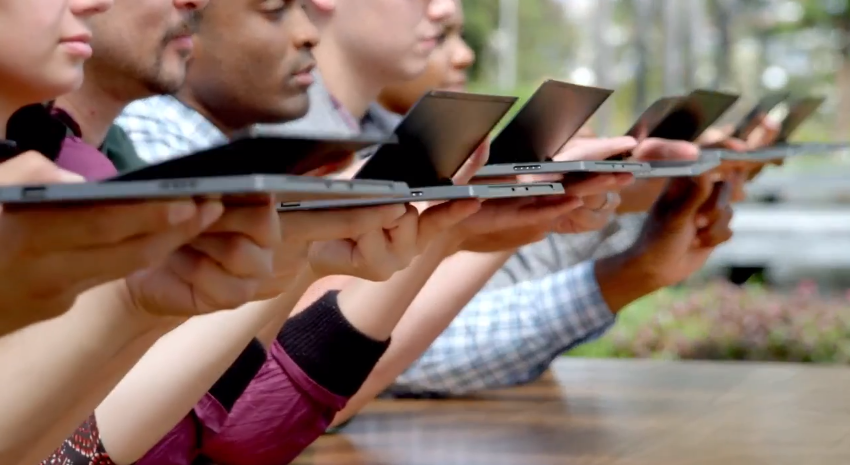
Microsoft Surface review for real people
I’ve spent the past couple of weeks reading review after review of Microsoft Surface. I feel like 90-percent of them were not written for me. You see, I’m your average user. I’m the average Joe user with a strong interest in the field of technology. I don’t care about pixel densities, or all the other niggles on performance tech geeks fight about all the time.
What matters to me: Does a particular device allow me to not only consume content but create it as well. And Surface accomplishes those two goals tremendously well. I write this review on a Surface RT using Microsoft Word in Office 2013.
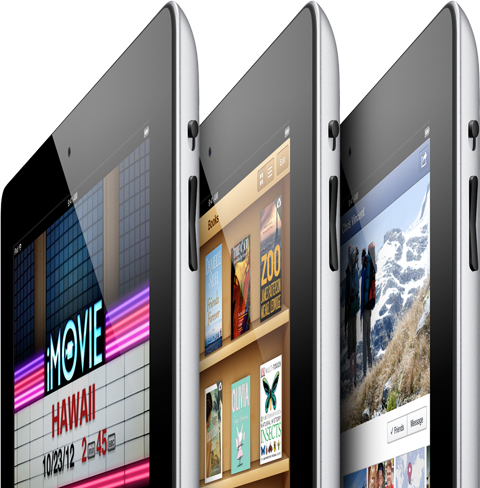
Apple iPad 4 review
I’ve been thinking about getting a new tablet for a while. Although there’s nothing physically wrong with my iPad 2, I’ve been itching for a bit of new tech in my life and there are some truly excellent choices available this year, including the newer "new" iPad, the iPad mini, Microsoft Surface, and the Google Nexus 7 and Nexus 10. All of which are definitely worth considering.
A friend let me borrow his Nexus 7 for a week, during which time I realized a small tablet was not for me, so that also ruled out the iPad mini. The Nexus 10 looked appealing, and so was on my shortlist. Microsoft Surface I discounted because even though I now use Windows 8 daily, I still don’t really like it and the current lack of great apps for Surface is a bit of a deal breaker. Maybe in the future…

Portrait Professional 11 offers even better ways to fix your ugliness
Anthropics Technology Ltd. on Wednesday pushed out a major update to its Portrait Professional "airbrushing" software, including new touch-up functionality, better handling of multiple faces in a single image, new face modeling and 3D skin processing, and much more.
There are a lot of solutions available to the consumer looking to gently touch-up photographs. Some are built into smartphones, some are available as freeware, some are available as plug-ins to common desktop software. It's all kid's stuff compared to Portrait Professional.
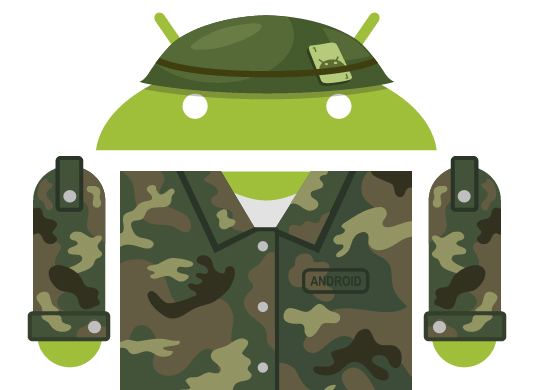
You can thank Microsoft for iPhone's retreat before the Android Army
Two months ago, I declared Android winner in the smartphone wars. The victory is now broader, in a total route of all competing operating systems and in process driving down iOS market share. That's right, after more than five years of near-constant growth, Apple's platform retreats before the Android Army.
Android's global smartphone OS share rose a stunning 19.9 points year over year in third quarter, according to Gartner. That's to 72.4 percent, up from 52.5 percent. Meanwhile iOS fell to 13.9 percent from 15 percent.

Get Modern UI look without Windows 8
The Windows 8 UX Pack 6.5, which emulates large portions of the Windows 8 classic desktop, including non-Aero effects and the new Charms bar, in Windows 7, gains two minor changes in this release. First, the default system drive icon has now been set to the same as that in Windows 8, while the other makes the Charms Bar Immersive UI the default setting.
Fixes include resolving issues with logon screens not changing properly on OEM-bundled machines, plus permission problems with third-party applications. Version 6.5 also ensures the Start orb shows up correctly after a system restart.

Internet Explorer 10 Release Preview for Windows 7 first-impressions review
When Microsoft first announced that Internet Explorer 10 would be part of Windows 8 most users assumed that this would also mean a release of the browser for the version 7 operating system. The first version of Internet Explorer 10 was released publicly with Windows 8's Developer Preview back in 2011, and then updated whenever new versions of preview builds released. Microsoft at that time was tight lipped about the future of IE10 for Windows 7
October 2012 came and brought along Windows 8's launch. It was in the week prior to the release of Windows 8 that the company shed some light on the future of IE10 for Windows 7. A blog post indicated that Microsoft had plans to release a preview version for Windows 7 in November 2012.

Google blows Nexus devices launch
If anyone should be able to handle online orders, other than Amazon, Google should be it. This is a cloud company, after all. But today's Nexus 4 and Nexus 7 sales debuts are a total bust, with countless processing errors. Google pissed off the wrong people. Blog and social network reports from the other launch countries boded ill for sales starting at 9 am PT today in the United States. Matters are much worse.
Even before the designated launch time, the costlier $349 Nexus 4 went out of stock, with many failed and successful buyers reporting multiple errors during the sales process. The $299 model shifted to "Notify Me" from "In Stock" minutes later. By 9:15 am PT neither smartphone was available, with lots of eager geeks frustrated by their unsuccessful attempts to buy a product in the shopping cart and purchase part-way processed. These gadget geeks are loud mouths and will rake Google for the fiasco launch.

A closer look at Android 4.2, the latest treat in the candy jar [Review]
Today, Google launches Android 4.2 Jelly Bean. Expectations run high for the latest member of the green robot family, even though it's less of a major upgrade and more of a here-and-there improvement from its predecessor. Can it live up to the excitement?
At a first glance, the second version of Jelly Bean is just that...the second version of Jelly Bean. It looks and feels very similar to its predecessor. I'm an avid Android modder, and a new operating system has to live up to pretty high expectations. So rather than write a boring review presenting some of the things that you already know, I will also assess these changes in comparison to custom distributions such as AOKP Jelly Bean Milestone 1, and CyanogenMod 10 nightly.
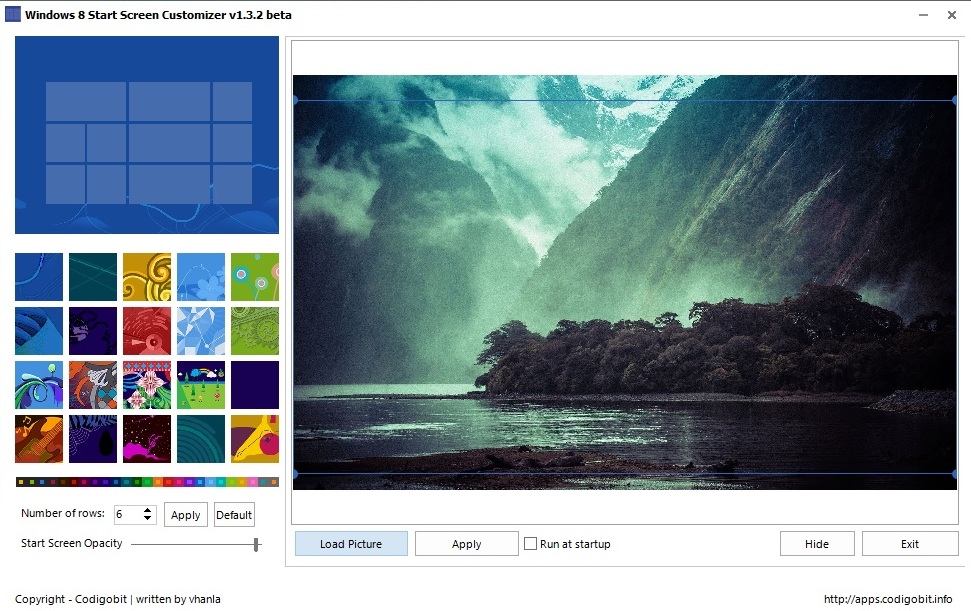
Windows 8 Start Screen Customizer review
The Windows 8 Start screen is without doubt one of the prominent new features of the operating system. It is the first screen of the operating system that new users see when logging in and also the screen that the majority see every time they do so. While there are ways to bypass the Start screen to go straight to the desktop, it is unlikely that the majority of people will make use of those.
It may feel like an oversight to some users that Microsoft decided to lock down the available Start screen customization options. Instead of giving users the option to select any background image they want, the company limits the Start screen backgrounds to 20. While Windows 8 users are still free to select custom pictures as desktop backgrounds, they do not have the same option when it comes to this important part of the operating system.
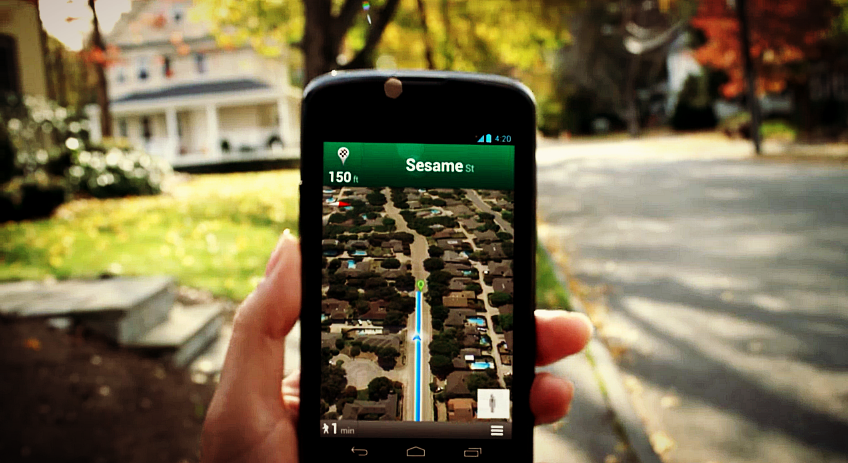
Who will buy Google Nexus 4?
Tomorrow, Google Nexus 4 goes on sale, along with the new Nexus 10 tablet. The question: Who will buy? I've got answers.
Six days ago, I posted poll "Will you buy Nexus 4?" Early responses are quite surprising. Exactly 53 percent of respondents say they will buy the smartphone "as soon as available", with another 15.4 percent planning to do so "within 3 months of release". Say, what? Yes, that's my reaction, too. But the phone has received rave reviews from those publications receiving one (we're on the wait list). The results contrast strikingly with our iPhone 5 buying poll. More than 70 percent plan to buy Nexus 4 vs 33 percent the Apple mobile.

I was wrong about Google Nexus tablet
In December 2011, I asserted: "Google Nexus tablet in six months is a year too late". The search and information giant proved me wrong. After failing to quickly respond to iPad and leaving Android leaderless, Google has recovered with a bang-up Nexus device strategy. Damn, this is my second tablet mea culpa -- the first about iPad nearly 18 months ago.
Tomorrow, Google expands the number of available Nexus screens to three, all running Android 4.2 Jelly Bean: 4.7-inch smartphone that replaces Galaxy Nexus as flagship; 7-inch tablet updated with more storage for purchase price and new 3G model added; 10.1-inch slate with higher screen resolution than iPad 4. The devices are "pure Google" and produced by LG, ASUS and Samsung, respectively. The original Nexus 7 released in July, receiving rave reviews and generating, ASUS asserts, about 1 million sales per month.
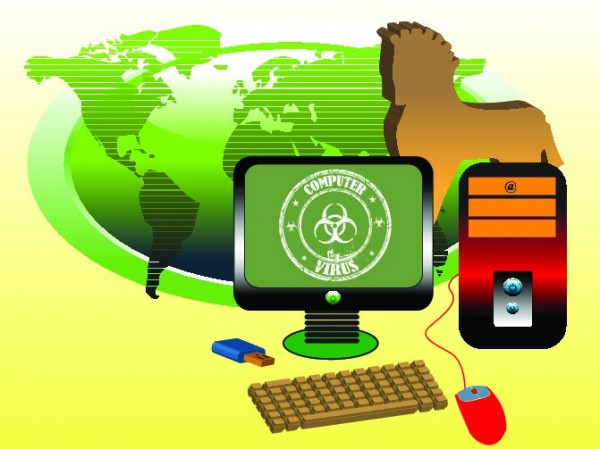
Symantec predicts security 2013
Symantec asked hundreds of its experts for their thoughts and opinions on what the biggest security threats will be next year -- assuming we all survive the Mayan apocalypse on December 21, of course -- and boiled down the results into five predictions.
The first threat to make the list is cyber-conflict, which Symantec sees becoming the norm. "Conflicts between nations, organizations, and individuals will play a key role in the cyber world", it says, envisioning a lot of sabre rattling, and countries and hacktivist groups using cyber-tactics to make a point and "send a message".
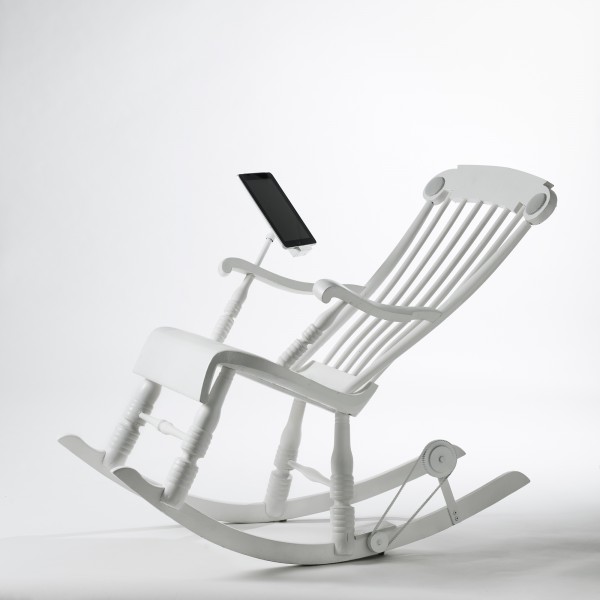
Charge your iPad with a rocking chair
Swiss furniture maker Micasa Lab designs some weird and wacky products. Cocoon 1, for example, is a customizable bubble -- a clear sphere with stackable plastic modules that let you relax, cook, and even wash up afterwards. But my favorite of its designs is the iRock -- a rocking chair that charges iPads.
It works, as you’d expect, by converting the rocking motion into energy, and as you’d probably also expect, it’s no match for just plugging your device into a mains charger. But if rocking’s how you roll, it will give your Apple device a little extra boost while you sit out on your porch reflecting on life (or playing Angry Birds Star Wars).

I smell a rat behind eBay's wildcard search change
Late last month, eBay, the dominant auction site, took away from users the ability to search auction listings with wildcard keywords, which can be very useful to buyers looking for very specific part numbers or product series. It is (or rather was) easy to store wildcard searches on eBay as a powerful way of drilling down through millions of items as they are listed. No more. And eBay’s reason for eliminating wildcard searches? “Our research showed that using specific terms to expand one’s search was a more effective method than wildcard searches, which oftentimes included unexpected variations that cluttered search results. By removing the wildcard (*) advanced search functionality, we’re able to deliver search results more efficiently and faster".
Yeah, right. Yes, it probably is more accurate to list individually all possible permutations of a search term, but if they can be replaced nearly as well with a single asterisk, why make users do it the hard way?
